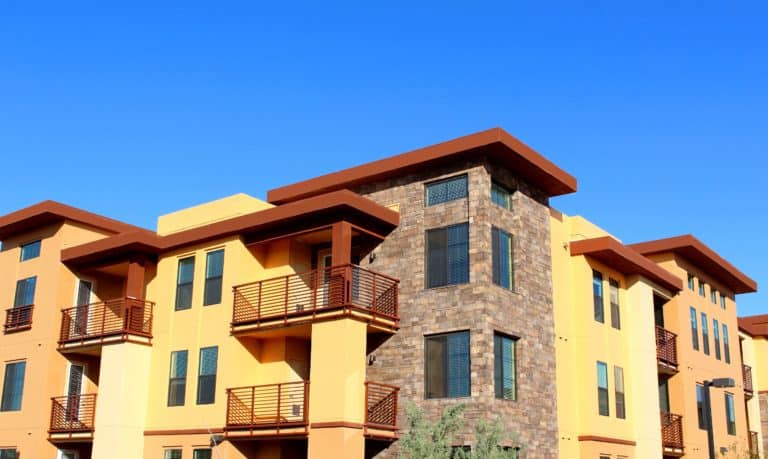Buying
Buying

Purchasing Your Home
Any major purchase requires research, careful analysis, consideration, and thought. Home buying isn’t any different! Determining the right location, the number of bedrooms or bathrooms needed, and outdoor space is the easier things. However, there are many other factors to think about in your home search. From your initial search to the moment you get the keys to your new home, I will be there, guiding you through the process. I can even help connect you with mortgage professionals to get the best rates.
Thank you for reading this post, don't forget to subscribe!As an area expert, I can help educate you on the different neighborhoods, schools, and other local community amenities that suit your lifestyle.
With the real estate market on the rebound, more people are thinking about buying their first home. They no longer want to spend money on rent and instead want to invest in a home that they will be able to truly call their own.
Before you join the flux of eager home buyers, it is important for you to evaluate whether or not you are ready for this important milestone. You also should learn as much as you can about the home purchasing process to ensure you find and buy a home that you can afford and be happy to live in now and in the future.
Length of Time in the Home
Buying a home is entirely different than renting an apartment or house. When you rent, you have the flexibility of moving whenever your lease is up. Alternatively, you can renew your lease and remain where you are as long as your landlord thinks you are a worthwhile tenant.
When you buy a house, however, you should think of it as more of an investment than merely buying a place to live. You want to get a good return on that investment, which is why you may need to stay in the home for several years if you want to cover the costs that come with buying and selling a house.
In fact, it can take up to five years for you to get any kind of positive return on your investment. As long as you take good care of your home, its value should appreciate at a rate of five percent a year.
This appreciation rate also depends on the market itself, which can fluctuate up and down and affect the resale price of your house. In most instances, if you want to cover what it would cost you to sell the home and buy another one, you may have to live in the first home for at least five years if not longer to cover your expenses.
With that, before you buy a home, you should reflect on how long you ideally want to live in it. If you are someone who likes to move often, you may fare better to rent than to buy right now.
If you do want to remain in the home for several years or longer, you should find a house that serves not only your present needs but also those that you may have in the future. You may need a house that will grow with the size of your family. You may want to buy a house that you can remodel or add onto easily. By evaluating how long you want to live in a house, you can solve the first part of whether or not you are ready to buy a home.
Find The Perfect Home !
Search Cities In Arizona
Financial Readiness
The other part of deciding if you are ready to buy involves your financial readiness. Do you have the money and the credit needed to actually become a successful homeowner?
Creditworthiness is a significant component of your financial health. While it is technically not impossible for people with bad credit to buy a home, they face paying higher interest rates and bigger monthly payments than people with good credit.
Before you buy a house, you should examine your credit report, consider your score, and decide how creditworthy you will appear to lenders. If need be, you should pay off and close accounts that are lowering your score.
You should also remove information that is faulty or wrong on your report. These steps will progressively help raise your credit score.
Additionally, you should consider your debt-to-income ratio. Most lenders prefer a debt-to-income ratio of 28/36. This ratio means that your current housing costs are no more than 28 percent of your total monthly income, and your total debts are no more than 36 percent of your income. If you have a higher debt-to-income ratio, you may not be approved as easily for an affordable mortgage.
Lenders also prefer to do business with people who have money saved for a down payment. It is typically recommended that prospective buyers offer at least 20 percent of the home’s asking price as an earnest down payment.
Some lenders may offer a mortgage with no down payment for people who have exceptionally good credit and high incomes, however. If your credit score is not the highest or you have a modest income, you should try to save a down payment before attempting to buy a house.
Finally, you should consider whether or not you have the income to cover costs associated with owning a home. These costs include:
- yearly taxes
- insurance
- maintenance
- home improvements and repairs
These expenses will be separate from what you already will be paying each month for your mortgage. If you can cover them without experiencing financial hardships, you may be ready to buy a home.
Finding the Ideal Home to Buy
Once you determine your readiness to buy a home, it is time to start searching for the best one for you and your family. Your first step in this search should involve hiring an experienced and competent real estate agent.
Your ideal agent should be well-versed in the area in which you plan to look for a house. He or she should also have a good track record representing first-time home buyers.
After you hire an agent to represent you, you need to establish the financial boundaries of the transaction. How much can you afford to spend to buy a house?
Let your agent know how much money you have for a down payment and how much of a mortgage you envision yourself taking on as a homeowner. The financial details will guide the agent in finding the best homes to show you.
Your agent should have access to a wealth of local listings. You should look at those that are listed both in the newspaper and on the real estate agent’s website. You also should consider the listings found online and on social media.
Make a list of houses in the area that you are interested in and want to see in person. You and your agent can attend the open houses and request more information about the properties. This step can help you narrow your search and focus on a house that will ultimately best suit your needs and wants.
You also want to check out the neighborhood to make sure you will be happy living there. Some of the facets to explore in the area include:
- access to shopping and entertainment
- quality and reputation of schools
- availability of houses of worship
- proximity to hospitals
- location of firehouses or first responder stations
Once you have found a house that you want to buy, it is time to make an offer. If the buyer accepts the offer and you can start the escrow process, you should immediately have the house inspected. You want your home inspector to look for signs of damage in the homes:
- roof
- walls
- basement
- electrical wiring
- plumbing
- heating and cooling system
If the house passes the inspection, you can complete the escrow arrangement, submit your down payment, and secure the mortgage. Before you close the sale, you should do one last walk-through to make sure you have found a house that you can be happy living in for years and will give you a good return on your investment.
This information gives you a relatively broad overview of what is involved in buying a home. You can get through the process as well as all of the information you need to become a successful homeowner by hiring a skilled real estate agent to represent you as a first-time buyer.
Home Buying Can Be Easy
As your buying agent, I can help streamline the process of buying a home and make it easier for you. I’ve aligned myself with the top professionals in the industry, and once an offer has been accepted, I will personally help facilitate the process to close on the home. By working closely with mortgage brokers, title and escrow companies, home inspectors, and home warranty companies I will provide you with the best service possible!
Curious about what’s happening in your neighborhood? You can create a custom market report to see what’s active, under contract, and sold in your neighborhood!
Considering selling or refinancing your home? Get an INSTANT property valuation now!
Contact us today to find out how we can be of assistance to you!

